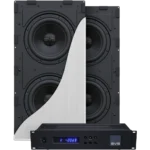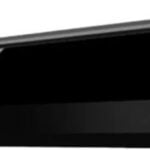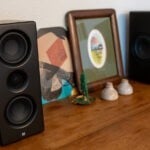Edwin_C
Stunt Coordinator
- Joined
- Jul 21, 2003
- Messages
- 113
And what is the actual change in any audible parameter (frequency response, distortion, noise, etc.) that this makes? What if I don't "tangle up my speaker wire" in a coil?EMI - electro-magnetic interference. more advanced speaker wire takes in less EMI. hence, less distortion and noise. more advanced speaker wire also uses less resistive material, compared to the typical speaker wire that uses nickel and copper. less resistance = better frequency response = more power lost to the wire. you don't have to tangle up your speaker wire in a coil, all you have to do is run it near the power lines.. and you have mutual inductance along with emi.
copper oxidizes when exposed to air for long periods of time. the exposed area then becomes more and more resistive. but you probably already knew that.. since you are the genius that you are.
see all this crap that i'm saying right now? this is the same reason why seperates are better then receivers. so then, do you deny the inherent difference between seperates and receivers?
your posts are all based on your own ignorance. educate yourself on electromagnetism before you try and argue.
-edit- i meant less power lost to the wire

 So, having had your "Kenwood Best Buy" claim demolished, you now claim that people with Snell, Sumo, and Accuphase equipment don't have sufficiently good ears.
So, having had your "Kenwood Best Buy" claim demolished, you now claim that people with Snell, Sumo, and Accuphase equipment don't have sufficiently good ears.



